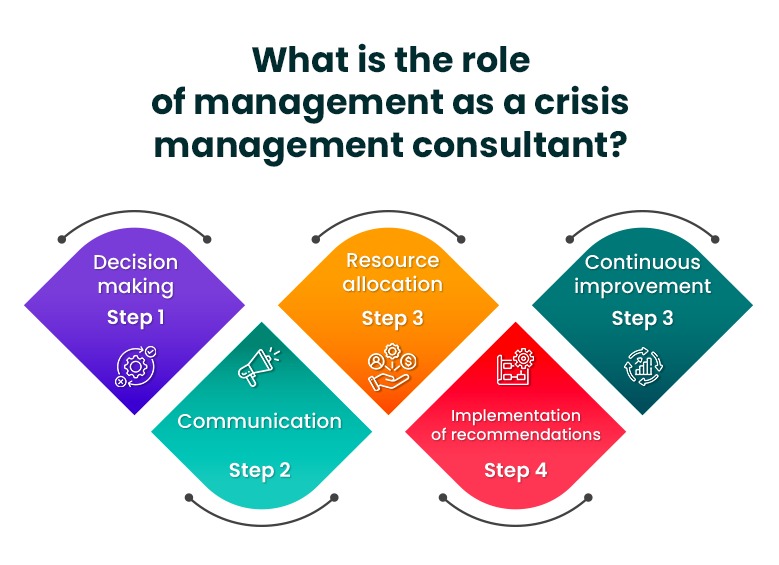
Crisis Management: How Management Consultants Provide Expert Guidance During Times of Crisis
In times of crisis, management consultants play a pivotal role in guiding organizations through tumultuous situations. Their expertise and strategic insight help businesses navigate challenges and mitigate risks effectively. By analyzing the situation, devising contingency plans, and implementing proactive measures, management consultants enable companies to adapt, recover, and emerge stronger from crises. Their multidisciplinary approach, coupled with industry knowledge, equips organizations with the tools and strategies needed to navigate uncertainty and ensure resilience in the face of adversity.
Crisis management consultants also play a crucial role in minimizing the financial impact of crises. Through careful analysis and risk assessment, they help organizations identify potential vulnerabilities and develop contingency plans that reduce the chances of severe financial losses.
What is the role of management as a crisis management consultant?
 The role of management in crisis management consulting is multifaceted and crucial for successfully navigating challenging situations. Management plays a central role in engaging and collaborating with consultants to address crises effectively. Here are several key aspects of management’s role in crisis management consulting:
The role of management in crisis management consulting is multifaceted and crucial for successfully navigating challenging situations. Management plays a central role in engaging and collaborating with consultants to address crises effectively. Here are several key aspects of management’s role in crisis management consulting:
1. Decision-making: Management provides leadership and direction in making critical decisions during a crisis. They work closely with consultants to evaluate options, assess risks, and determine the best course of action to mitigate the impact of the crisis on the organization.
2. Communication: Management acts as the primary communication channel between the consulting team and other stakeholders within the organization. They ensure clear and timely communication of objectives, strategies, and updates throughout the crisis response process.
3. Resource allocation: Management is responsible for allocating resources, including personnel, finances, and technology, to support the crisis management efforts. They work with consultants to identify resource needs and ensure that adequate support is provided to address the crisis effectively.
4. Implementation of recommendations: Management oversees the implementation of recommendations proposed by consulting teams. They ensure that strategies and action plans are executed efficiently and monitor progress towards achieving crisis management goals.
5. Continuous improvement: Management collaborates with consultants to conduct post-crisis reviews and identify lessons learned. They use this feedback to enhance crisis management processes, strengthen organizational resilience, and better prepare for future crises.
Overall, management’s active involvement and collaboration with crisis management consultants are essential for effective crisis response, recovery, and organizational resilience building.
